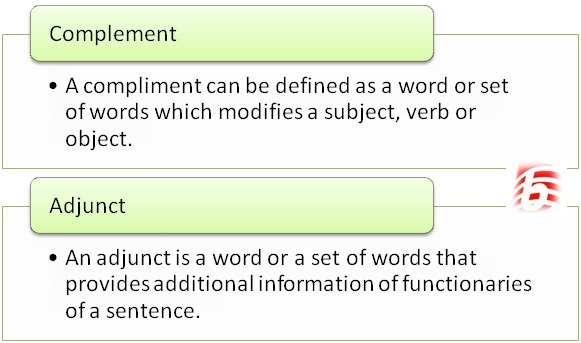Adjunct vs Complement
In grammatical theory, adjunct and complement are terms that may appear similar to students, but they have a clear distinction in their functional capacities. The main difference between a complement and an adjunct is that a complement is indispensable for a sentence or phrase to convey meaning, while an adjunct is optional and serves to elaborate the sentence or phrase. In this article, we will explore these two concepts in detail and discuss their differences.
What does Complement mean?
A complement can be defined as a word or set of words that modify a subject, verb, or object. Complements are necessary for a sentence because, without them, the sentence would not convey meaning to the reader. For example, consider the sentence “Clara is a musician.” The word “musician” is a complement, specifically a subject complement. If the complement were removed, the sentence would be incomplete and grammatically incorrect.
There are different types of complements, including subject complements, object complements, verb complements, adjective complements, and adverbial complements. The main idea is that a complement, in various forms, is mandatory for the identity of a sentence.
Key Takeaways
- A complement is essential for a sentence to be grammatically correct and to convey meaning.
- An adjunct is optional and serves to elaborate the sentence or phrase.
- The main difference between a complement and an adjunct lies in their impact on the construction of a sentence and its identity.
What does Adjunct mean?
An adjunct is a word or set of words that provide additional information about the functionaries of a sentence, such as the subject, object, and predicate. Adjuncts can be removed without making the sentence grammatically incorrect, and even after their removal, the sentence would still convey meaning. In this sense, adjuncts are secondary or optional to sentence construction, and their removal does not impact the sentence’s identity. Adjuncts are often adverbs that help describe the verb, providing information about time, frequency, manner, place, or reason.
For example, consider the sentence “I completely forgot about his arrival.” The word “completely” is an adjunct, an adverb that describes the verb “forgot.” Removing the adjunct would not affect the sentence’s construction or meaning, only the strength or magnitude of the action.
What is the difference between Adjunct and Complement?
The main difference between a complement and an adjunct lies in their impact on the construction of a sentence and its identity.
- A complement is essential for a sentence to be grammatically correct and to convey meaning.
- An adjunct is secondary, only elaborating the functionaries or providing a more descriptive image of the sentence, and its removal does not harm the overall meaning or construction of the sentence.
